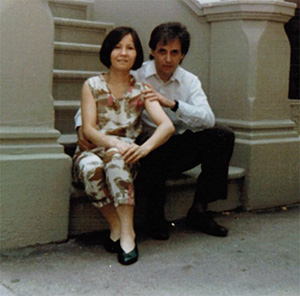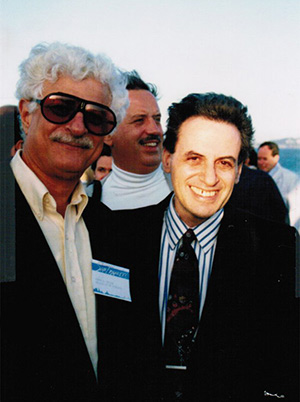| The Birth of the Library of Social Science By Richard A. Koenigsberg |
|||
It all began with a meeting of the International Society of Political Psychology that took place in Secaucus, NJ, in July 1988. The mission of studying collective forms of violence—and of developing book exhibits containing the most significant titles in a field—were united from the beginning. Library of Social Science was founded in April 1975 with the publication of Hitler’s Ideology. One thousand hardbound copies (with a nice dust jacket) were delivered to my one-bedroom apartment on West 95th Street. From this point forward—having abandoned other “jobs”—I was on my own, a complete unknown. I focused all my energies on selling my book. I was successful at getting Hitler’s Ideology into the hands of many important scholars in the field—and to turn my book into a best-seller in the college library market. Marketing my book occupied my time for well over a year. But what could I do next? Lacking the resources to establish a publishing business, I spent a lot of time wandering around Barnes & Nobles (the flagship store on Fifth Avenue and 18th Street), where I discovered great books selling at ridiculously low prices (by some of my favorite authors like Leslie Fiedler and Kurt Eissler). I said, what the hell, why not go into the remainder book business? Furiously studying books and listening to tapes on sales and business management, I transformed myself from a psychologist/social scientist into an “entrepreneur” (way before this term was fashionable). Eventually setting up an office at the Sofia Brothers Warehouse, I focused on telephone marketing—and was able to stay in business. However, subsequent to quitting my job as a college professor (in 1971), I had virtually no contact with the academic world. Then, in 1986, I received a letter from an Israeli psychoanalyst and writer inviting me to participate in a panel at the 1987 meeting of the International Society of Political Psychology (he had written two articles on “Border Symbolism”). I turned him down—I was too busy running my business. Then he invited me again in 1987 for the 1988 ISPP meeting. I said, what the hell—let’s give it a shot—see what’s going on in the world I had abandoned. I agreed to participate in a panel. To my surprise, Falk joined me up with Dr. Vamik Volkan, perhaps the most prominent political psychologist in the world (subsequently nominated four times for the Nobel Peace Prize). The International Society of Political Psychology was founded in 1978 by Jeanne N. Knutson of the Department of Psychiatry and Biobehavioral Sciences at UCLA. After her death in 1981, Denis Snook (a student of Knutson’s with a PhD in Political Science) served as Conference Director. Denis organized a little book exhibit for the 1988 ISPP conference (as he had, apparently, at previous meetings)—and invited me to participate. Again I said, what the hell—let’s give it a shot. I brought some of the titles I’d been selling to libraries and with my partner, Mei Ha Chan, set up two tables of books (perhaps 14 titles). So there I was at last, returning to the academic world after all those years wandering around Manhattan: uniting my skills as a salesman (creating a book exhibit) and a social scientist (giving a presentation). This event marked my return to “civilization”—the beginning of the end of those “Nights on Broadway.” |

